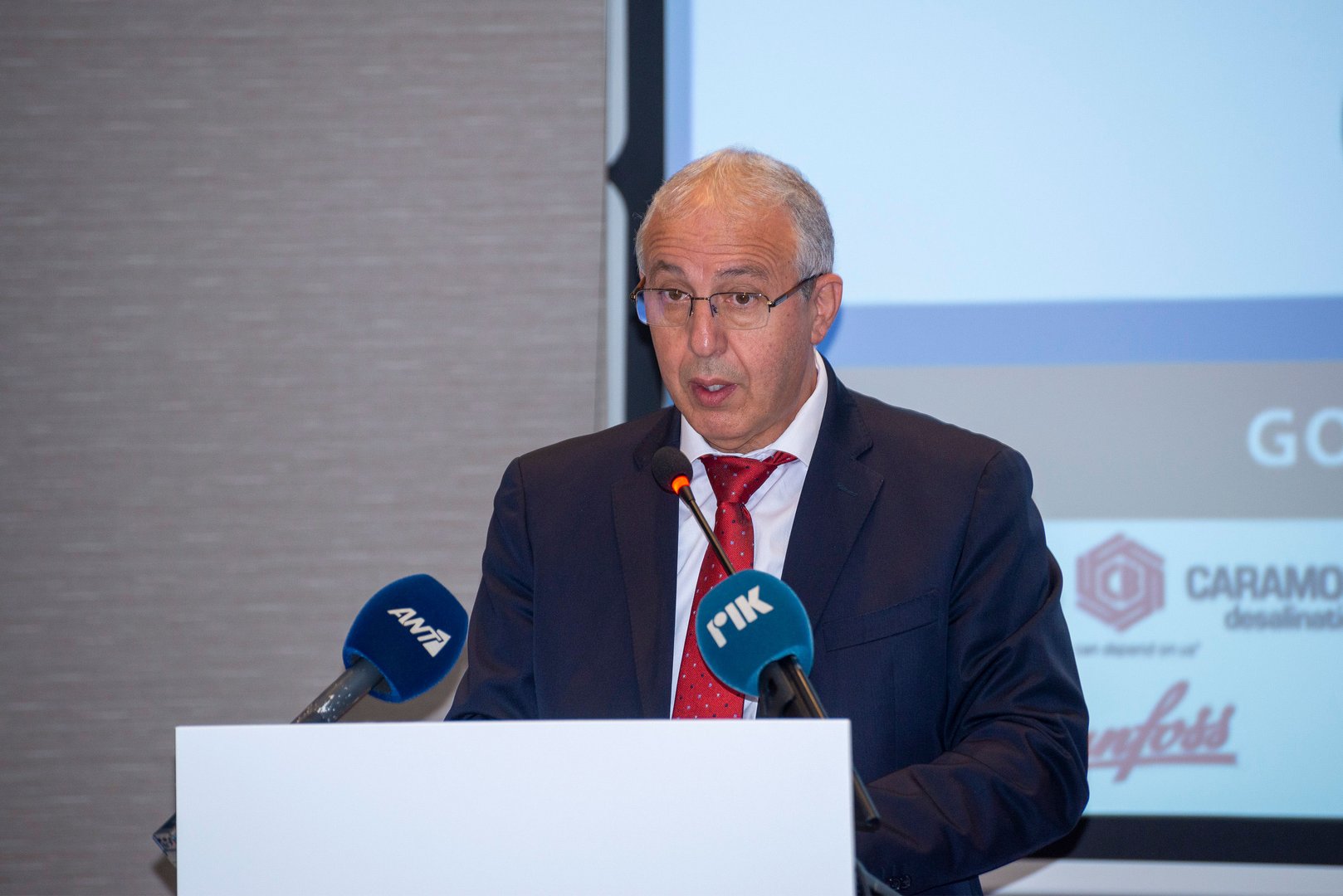Sharing knowledge and fostering regional collaborations on desalination can help create a more resilient and water-secure future for all, Agriculture Minister Petros Xenophontos said on Tuesday.
Speaking at the European Desalination Society’s annual conference, currently being held in Cyprus, the minister said it was a unique opportunity “to discuss the critical intersections between agricultural and rural development, climate change and environmental sustainability,” but also their common challenges and the vital role desalination has to play in addressing them.
With its arid climate and limited freshwater resources, Cyprus faces immense challenges in meeting water demand, especially in the summer period, Xenophontos said, adding that as the minister responsible for overseeing agriculture, rural development and the environment, he is aware of the impact of water scarcity on the community, food production and the public’s wellbeing.
“Cyprus’ reliance on desalination is remarkable,” he said. “With a population of approximately 1.2 million and three to four million tourists visiting us every year, our country relies heavily on desalination to bridge the gap between water demand and supply”.
He added that today, the island’s desalination capacity has reached an impressive 280,000 cubic meters per day.
The agriculture minister also highlighted the challenges of the desalination process, particularly its energy requirements, which can place a significant burden on both the environment and the economy.
“We are therefore committed to fostering research and development to optimise energy consumption, explore renewable energy integration, and reduce the carbon footprint associated with desalination,” he said.
The minister emphasised the importance of integrated water resource management and the reuse of treated waste water, saying it has proven to be a reliable, steady source of water for agriculture and industry.
“Embracing a holistic approach allows us to optimise our water resources, minimise waste, and promote agricultural sustainability,” he said.
Xenophontos also addressed the socioeconomic dimensions of desalination, stressing that access to treated water must be equitable and affordable, particularly for rural communities that depend on reliable water sources for their livelihoods.
The impact of desalination in Cyprus is evident, he added, saying that the island’s long and successful history with desalination “serves as a beacon of hope and inspiration” for neighbouring countries in the region facing similar water challenges.
“Our experiences and knowledge can be shared, fostering regional collaborations that accelerate progress in water management and resource sustainability,” he said. “By working together, we can create a more resilient and water-secure future for all.
“Together, we can shape a future where desalination plays a pivotal role in ensuring water security, protecting the environment, and fostering prosperity,” he concluded.







Click here to change your cookie preferences